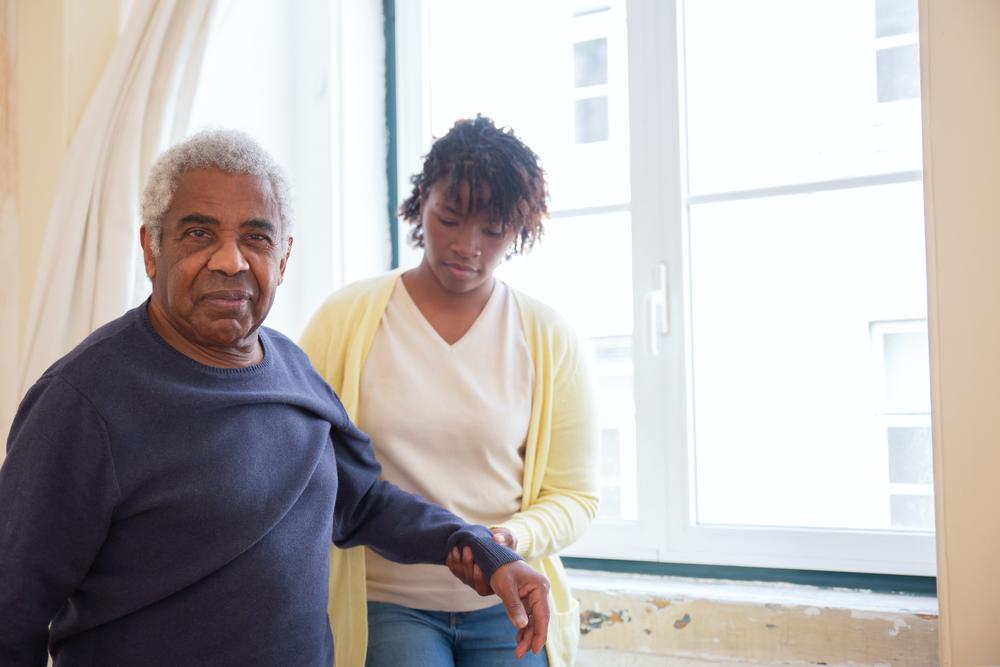
Caption
The United States is racing toward a severe caregiver shortage with expectations that the issue will continue through 2028. The COVID-19 pandemic exacerbated this problem.
Credit: Photo by Kampus Production from Pexels
|Updated: March 3, 2022 3:37 PM
The COVID-19 pandemic worsened the gap between those who need care and those who provide it. And with one in every five Georgians over age 60, that gap is likely to widen. GPB’s Ellen Eldridge reports.

The United States is racing toward a severe caregiver shortage with expectations that the issue will continue through 2028. The COVID-19 pandemic exacerbated this problem.
Almost 20% of Georgia's population is older than age 60, and about 10% of the state's seniors are living alone, but only about seven caregivers exist for every 100,000 residents, according to data analyzed by The Mesothelioma Center.
There are not enough caregivers available for the baby boomer demographic group, whose members over age 65 grew from 41 million people in 2011 to 71 million in 2019 — a massive 73% increase.
The U.S. Census Bureau estimates this number will keep rising, projecting it will reach 82 million by 2030.
This was before COVID-19 killed 30,000 Georgians and severely sickened patients of all ages. Even in families where everyone stayed healthy, parents became teachers and spouses became caregivers while still juggling careers from home.
Sean Marchese, a registered nurse and oncology writer at The Mesothelioma Center, said caring for others can be an exhaustive job when managing someone's daily schedule and tasks while also trying to take care of your own needs.
"A lot of these people are putting their extra time and energy into caring for someone else for a large majority of their time without any kind of reimbursement or compensation," he said.
According to the Centers for Disease Control and Prevention, informal or unpaid caregiving provided by friends or family members has been associated with:
Over half (53%) of caregivers indicate that a decline in their health compromises their ability to provide care.
Additionally, quarantine and isolation triggers relapses for those in recovery from substance use disorder. Mental health issues such as anxiety, depression and sleep disorders continue pervasively two full years after the COVID-19 pandemic emerged.
As people continue leaving the workforce — either to change careers, to retire, or to stay home and provide care — demand for professional services rises.
By 2030, the demand for home health care is anticipated to grow by 46%, with more than 1 million new home care jobs needing to be filled. In Georgia alone, 142,900 jobs in home health care will be available in the next six years.
Currently, roughly 75,000 people work as paid caregivers across the state.
MORE:
But a surplus of available jobs does not mean caregiving work is respected.
Consistently low-paying jobs contribute to the current caregiver shortage occurring across the country. The median hourly wage for direct care workers in 2020 was $13.56.
Georgia's average hourly wage for professional caregivers in 2020 was $13.84.
"I think Georgia is in a good place," Marchese said. "Increasing those incentives for caregivers, providing better pay, increasing the number of caregivers in the state will go a long way toward improving quality of life for a lot of Georgia's older adults."
A 2020 workforce equity study from Policy Link ranked home health aides as the fifth-lowest and personal care aides as the fourth-lowest-paying jobs among the 25 lowest-paying jobs disproportionately held by people of color. Only dishwashers, fast-food cooks and cafeteria attendants were paid less. Nursing assistants also made the list, ranking 19th.
Research has shown that low wages are often cited as the main reason 50% of direct care workers leave their jobs within the first year. They also point to strenuous workloads, lack of advancement opportunities and little to no health care benefits as additional issues leading them to quit.
Marchese said it's a slippery slope once people find themselves in the unexpected role as caregiver and start sacrificing their own health.
"One of the most important things you can do as a caregiver is protect your own well-being so that you can be a good caregiver for whoever you're taking care of," Marchese said. "That means taking time for your own mental and physical health and separating your work from the responsibilities of keeping someone else alive, essentially. And that's a huge burden and something that people need to manage."
An earlier version of this story said only one caregiver exists for every 100,000 Georgia residents. The actual ratio is about 7.1 per 100,000.